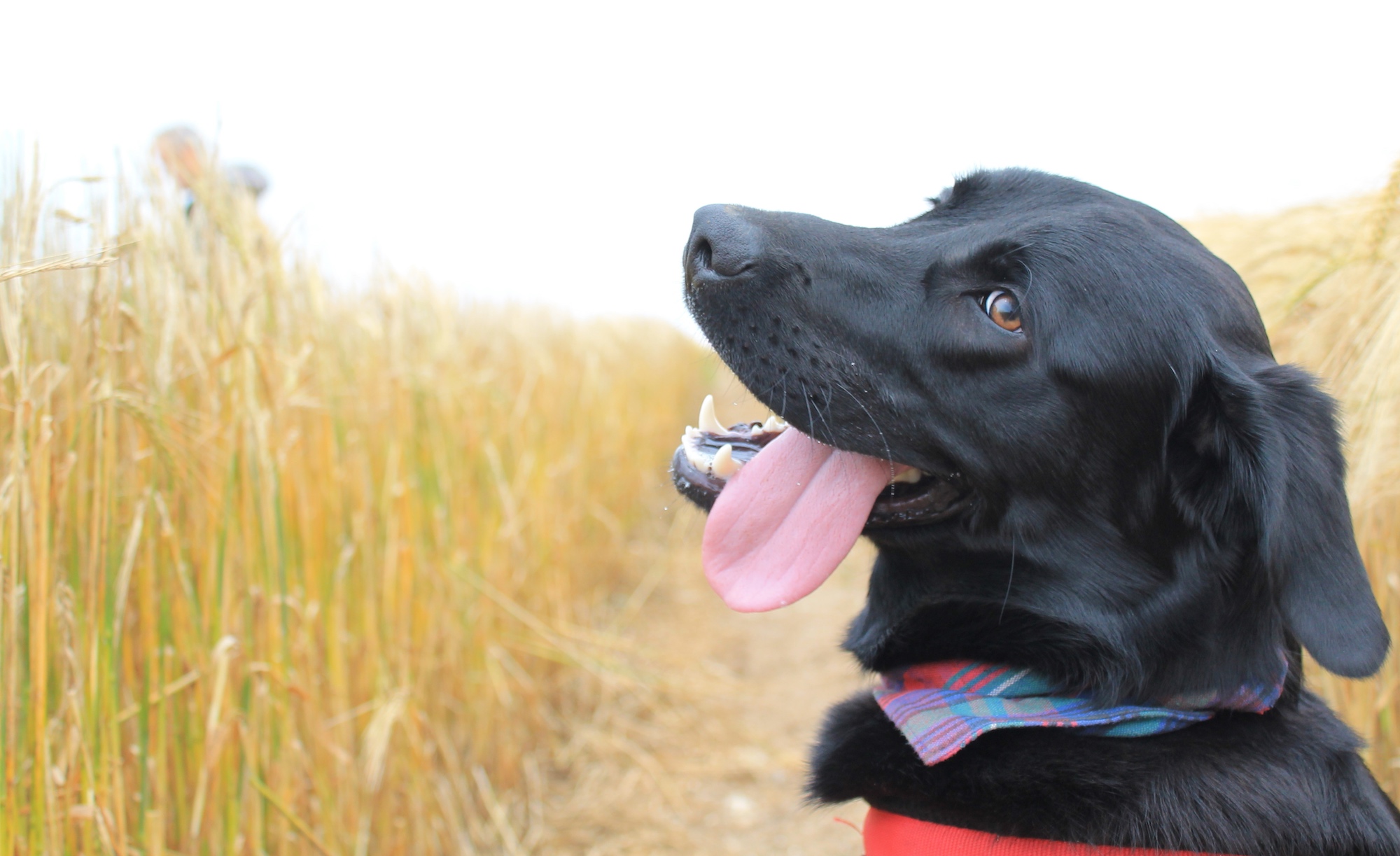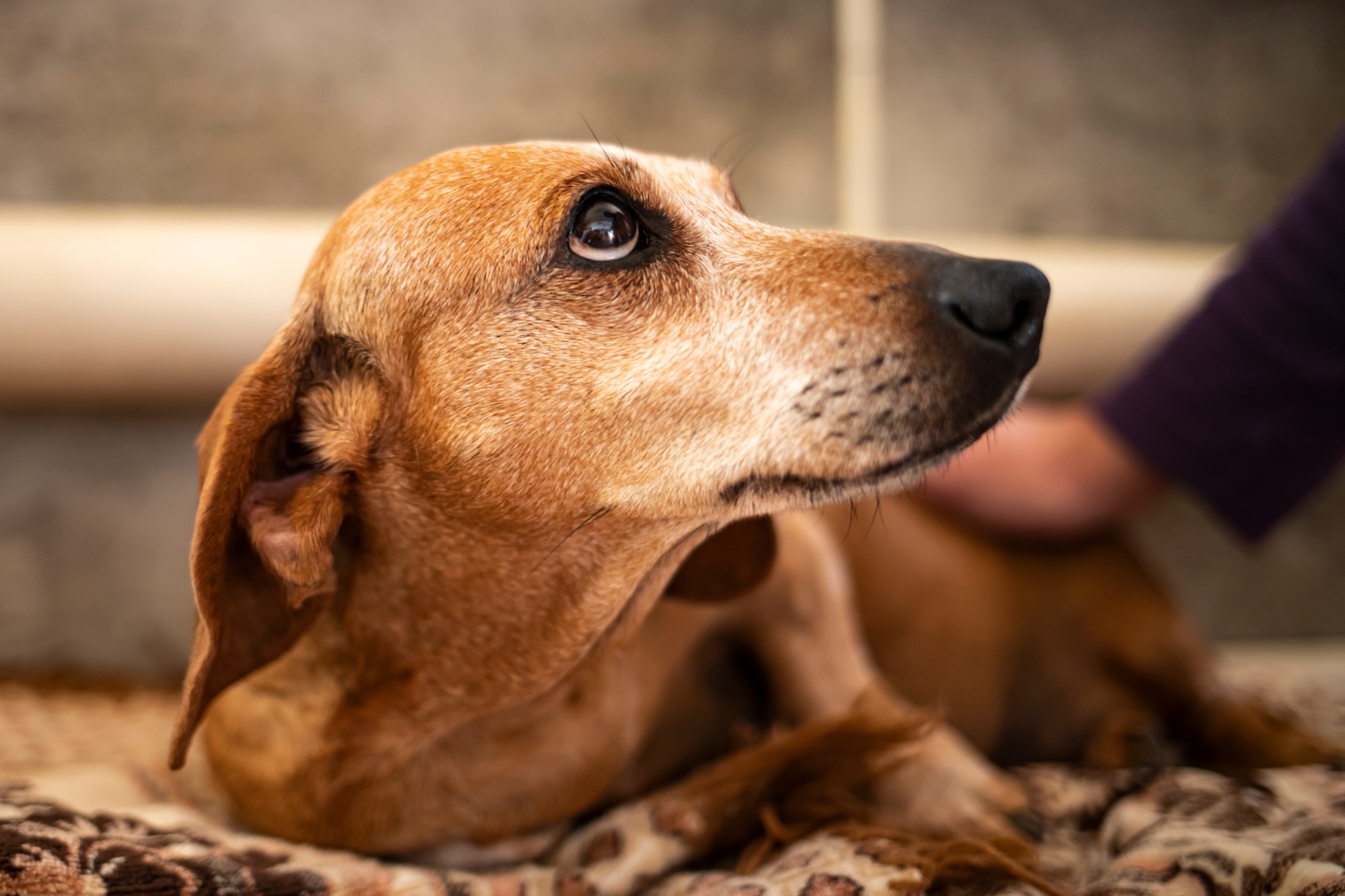A bowel obstruction can cause permanent damage or even kill a dog if it goes untreated, so it’s important to know the signs of the condition, how to protect your dog from getting it in the first place, and how to help them if they require treatment. If you suspect that your dog might have a bowel obstruction, don’t delay; contact a veterinarian immediately. Doing so could save your dog’s life.
What is a bowel obstruction?
A bowel obstruction is something that prevents matter from moving through a dog’s stomach or intestines. Foreign objects—like pieces of toys, clothing, or bones–can cause obstructions, as can growths like tumors.
A complete bowel obstruction will prevent anything at all from passing through the digestive system; a partial obstruction will allow some waste to make its way out, but is still dangerous and requires treatment. Blockages interfere with your dog’s digestive system, preventing the absorption of fluids and nutrients. This can quickly cause your dog to become dehydrated or develop an electrolyte imbalance. Blockages can also damage your dog’s intestines—restricting blood flow, killing off tissue, or puncturing the intestinal wall. Bowel obstructions are emergencies that require immediate treatment. Left unaddressed, they can be fatal—so if you suspect one, bring your dog to a vet.
How to avoid bowel obstructions in dogs
Bowel obstructions are very dangerous, and it’s best to avoid them altogether if possible. Fortunately, because the most common cause of bowel obstructions in dogs is ingestion of foreign bodies, humans can greatly reduce the chances of their dogs experiencing this condition by taking some simple precautions.
Feed your pup only food intended for dogs, and only let them chew on objects that are designed to be safely used for that purpose. It’s also a good idea to keep an eye on your dogs while they’re playing with toys.
It’s easy for dogs to accidentally swallow small items – so keep objects small enough to gulp down, and toys with small parts, away from your friend.
Signs of bowel obstructions in dogs
Common signs that a dog has a bowel obstruction include vomiting, loss of appetite, lethargy, bloating, and a painful abdomen that’s sensitive to touch. If your dog whines or becomes aggressive when you touch their abdomen, those are indications that they may be in pain.
Unless you’ve seen your dog eat something they shouldn’t have, it’s easy to dismiss these as signs of an upset stomach. If your dog is displaying any of these symptoms, or if you suspect your dog may have a bowel obstruction, it’s important to see a vet as soon as possible. Bowel obstructions can kill a pet within days.
What to do if you suspect a blockage
If you suspect your dog has an intestinal blockage, call your vet ASAP. It’s important you see the vet as soon as possible; delaying care increases the chances of a bad outcome. Withhold food until your dog has seen the vet (this is another reason to see the vet right away). Even if you see something sticking out of your dog’s bottom, never try to pull it out on your own – doing so could cause a severe injury, and you and your pup will be much better off leaving removal to a trained professional.
Your vet will begin with a physical examination, touching the dog’s abdomen to look for signs of a blockage. They may also take X-rays or an ultrasound of your dog to look for an obstruction.
A vet may also perform an endoscopy, during which they put a small flexible tube with a camera attached down a dog’s throat and into their stomach to search for foreign material in the stomach. However, if material has reached the bowels and become an obstruction an endoscopy will not be able to reach or fix it. The vet will sedate your pup before an endoscopy so that they can complete the procedure safely.
Most common treatments for bowel obstructions
Both surgical and nonsurgical treatment options are available for a dog who has swallowed a foreign body. The route chosen by your vet depends on the location of the blockage, the amount of time the object has been stuck, and what the object is. Objects with sharp edges are especially concerning. Once an object is obstructing a dog’s bowels, surgery is the only way to remove it.
Nonsurgical treatments for foreign objects in dogs
Your vet may be able to remove an object via endoscopy, using the camera to guide them. If this isn’t possible, they’ll likely use an X-ray or ultrasound to figure out where the blockage is and come up with a plan from there.
Surgical treatments for bowel obstructions in dogs
If the vet feels that the blockage is life-threatening, they’ll order emergency surgery to remove it. Waiting too long can make a procedure more complicated, and untreated blockages can be fatal. If surgery is required, your vet will administer general anesthesia so that your dog can sleep through the procedure.
The surgery itself involves an incision being made in your dog’s abdomen, giving the vet access to their intestines to remove the blockage. The duration of the surgery depends on what’s causing the blockage, where it is located, and how badly the intestines are damaged.
Recovery after surgery will vary, but it’s important to follow your vet’s instructions so that your dog can return to good health. You’ll need to keep your dog’s activity to a minimum so that their intestines and surgical wounds can heal properly.
Your dog will also need a cone to prevent them from licking or removing their stitches. During the recovery period, your vet will ask you to adjust your dog’s diet as their digestive system returns to its normal level of activity. The vet may also prescribe pain medication to keep your pup comfortable while they heal.




